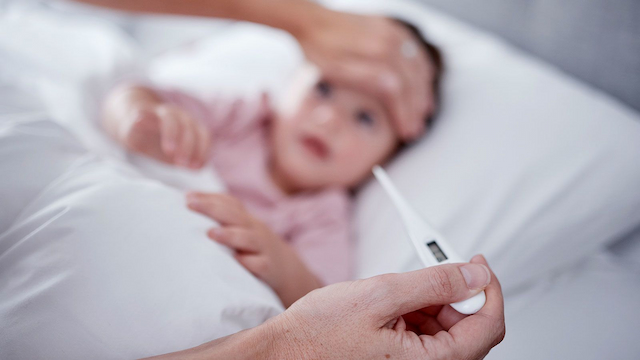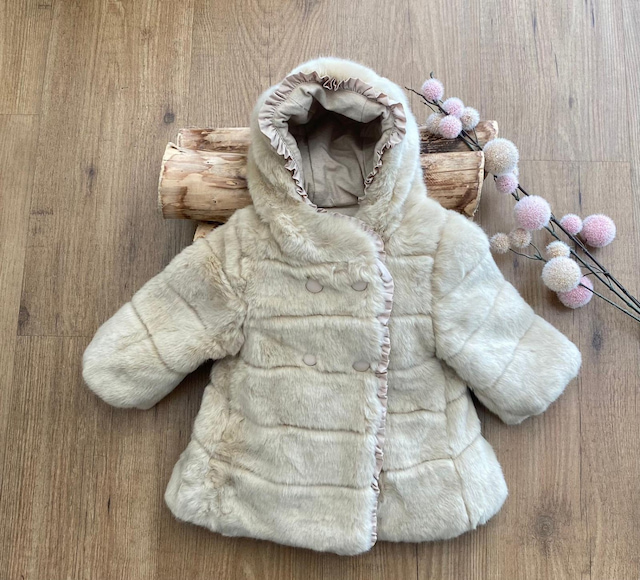Contents
Babies are highly susceptible to getting sick from colds and the flu. This is because they don’t yet have a developed immune system that helps them fight off infections. There are several things that you can do as a parent to make sure that your little one is safe and protected at this fragile age.

Maintain Good Hygiene
One method that helps prevent the spread of cold and flu is practising good hygiene. Wash your hands regularly, especially after touching your face or blowing your nose. Use soap and water and scrub your hands thoroughly for at least 20 seconds. When these aren’t available, use an alcohol-based sanitiser instead.
Clean and disinfect frequently touched surfaces like doorknobs, light switches, and toys, to help prevent the spread of germs. Additionally, encourage your baby to practice good hygiene. As they get older, you can teach them good hygiene habits, such as washing their hands frequently and covering their mouth and nose when they sneeze or cough.
Dress Them Appropriately for the Weather
You can take your little one outside in chilly weather, however, remember that their bodies aren’t equipped to handle low temperatures. They can’t regulate their body temperature yet and lose heat faster than adults due to their thin bodies and low levels of body fat.

Choose one of these cosy and fashionable baby girl coats and jackets to keep your little one warm and comfortable when the weather is cold. They’re available in a variety of designs and colours, so pick the one that best complements your little girl’s style and protects her from harsh weather.
Quilted baby girl coats have a classic and timeless design that’s perfect for a variety of occasions. One option is the “Quilted Jacket,” which features a diamond-pattern quilted exterior and a cosy inner lining to keep your baby warm. It has a front zip closure for easy dressing, and it’s made from a high-quality polyester and elastane blend, which makes it durable and stretchy for a comfortable fit. The quilted baby girl jacket is also machine washable, making it easy to care for.
Another option is the “Quilted Vest,” which has a similar quilted design but it’s a lightweight option for milder temperatures. It also has a front zip closure and is made of a polyester and elastane blend.
Apart from quilted coats, you can also choose from a variety of trench coats. These stylish newborn girl coats are a great choice for mildly cold weather. The trench coat has a traditional design with a double-breasted front closure and a belted waist. It’s made of a cotton and elastane blend, which gives it a soft and stretchy feel.
So, when preparing for your new baby, remember to stack up on the comfy baby boy and baby girl coats and jackets to keep your little one warm outdoors. Since babies can’t regulate their body temperature, the extra layers will help them survive the chilly weather.
Vaccinate Them
Medical professionals around the world recommended that infants receive a flu vaccine to protect them against the flu. This vaccine is an important tool for preventing illness and complications from the flu, which can be serious, especially in young children.
But at what age can I vaccinate my baby against the flu? According to the Department of Health, everyone over the age of 6 months, including infants, should get a flu vaccine every year. It’s especially important for certain groups of people to get vaccinated, including babies, pregnant women, and people with certain medical conditions that make them more at risk for complications from the flu.
There are several different types of flu vaccines available, including injectable flu shots and nasal spray vaccines. Your baby’s healthcare provider can recommend the best option based on your child’s age, medical history, and other factors.
It’s important to talk to your child’s healthcare provider about the best time to get a flu vaccine. The flu season varies from year to year, but the flu vaccine is typically available in the fall. It’s a good idea to get vaccinated as soon as the vaccine becomes available to ensure that your child is protected before flu activity starts to increase.
Avoid Visiting Public Places
If your child is under 6 months old, you should avoid taking them to crowded public places as much as possible. This is because newborns have an immature immune system and are more susceptible to infections. They also have a higher risk of complications from infectious diseases, including the flu.

Flu viruses are easily spread through respiratory droplets that are released when an infected person talks, coughs or sneezes. People that are nearby can easily inhale these droplets.
Contact Their Paediatrician When Necessary
It’s normal for babies and young children to experience colds. This is because their immune systems are still developing and they’re exposed to a lot of other children in daycare, increasing their chances of getting infected.
However, if your child’s cold symptoms get worse or don’t improve after a few days, it’s a good idea to contact their paediatrician for further evaluation and advice. In particular, you should contact the paediatrician if your child has any of the following symptoms:
- High fever (over 38°C);
- Difficulty breathing or rapid breathing;
- Persistent or severe coughing;
- Chest pain or pressure;
- Bluish skin colour;
- Difficulty feeding or drinking;
- Signs of dehydration, such as dry mouth, dizziness, or sunken eyes.




Comments are closed.